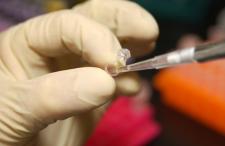CGS-authored

Japanese scientists have been given the go-ahead to start modifying fertilized human eggs. However, they will not be creating designer babies any time soon, as a government bioethics panel is only allowing the technique for basic research purposes.
The editing of genomes has already been used for plants, human body cells and animals, but there have been debates about the ethics of looking to modify fertilized human eggs.
A Japanese government bioethics panel said on Friday that the scientists will be allowed to use the fertilized human eggs to try and find out which genes play an important role in early phases of growth. The modified eggs will also be used to develop treatments for inherited diseases and to improve technologies related to reproduction, Kyodo news agency reported.
However, the panel said it will not approve the clinical use of modified fertilized human eggs, as the effect on the babies is still unknown.
In April 2015, a team of Chinese scientists at the Sun Yat-sen University in Guangzhou created history by successfully editing genomes of human embryos.
The team of...



